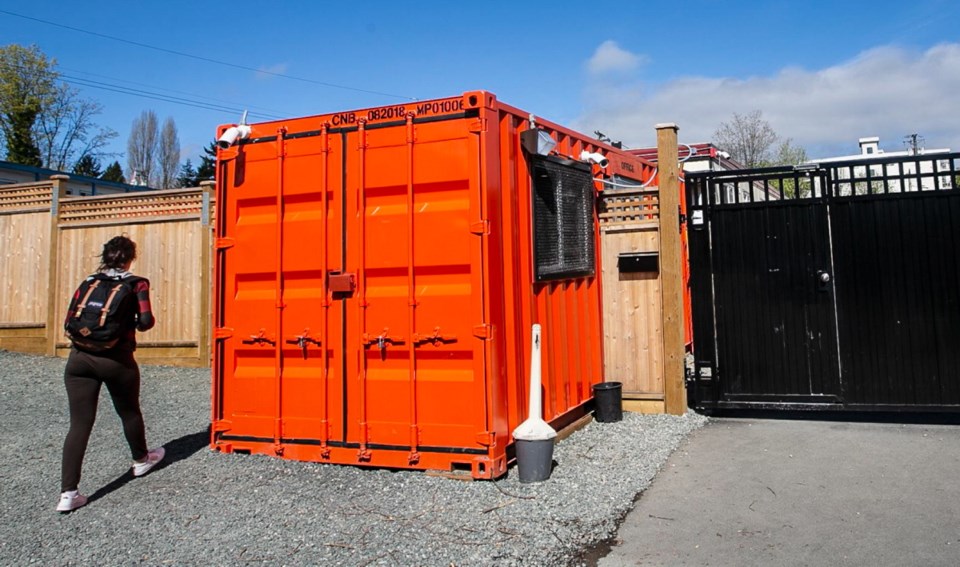The province had the right to bypass City of Nanaimo zoning rules when it set up the Newcastle Place supportive housing complex in late 2018, a B.C. Supreme Court judge has ruled.
Justice Amy Francis decided that B.C. Housing is a user of the lands, contrary to the argument put forward by nearby resident Janet Buechler and other neighbours concerned about the temporary housing site.
That group took the province, the Island Crisis Care Society and the city to court to challenge the right of the province to bypass municipal zoning requirements in order to establish the facility at 250 Terminal Ave. N.
The plaintiffs argued that because the society runs Newcastle Place, employs staff and accepts rent from tenants, it is therefore the operator and thus subject to the zoning rules.
But an Oct. 24, 2018, letter from the province to the city said that B.C. was “exercising paramountcy” for the Newcastle Place site as permitted under provincial legislation.
That meant that the province was not required to follow a municipal zoning process. The letter did say: “For any permanent future development at the 250 Terminal Avenue site, B.C. Housing will go through the municipal rezoning and permitting process (development and building permit).”
Modular housing was erected to help address the homeless crisis in Nanaimo, the letter said.
Newcastle Place is operated by the Island Crisis Care Society under contract with the province. It is one of two supportive housing facilities erected in Nanaimo after a tent city, established in spring 2018, was dismantled.
Nanaimo won court permission to dismantle the tent city. Campers were to leave by late October, but those qualifying for alternative housing were allowed to stay until Nov. 30, 2018, the date that Newcastle Place opened.
The provincial government purchased a lot on Terminal Avenue and leased another site from the city for a second facility. It bought modular housing for each property.
Francis said: “The fact that B.C. Housing has contracted with [the Island Crisis Care Society] to provide day-to-day management and provision of services to the residents of Newcastle Place does not mean that B.C. Housing is no longer the user of the lands.”
Under legislation, the province could bypass zoning regulations to erect or operate Newcastle Place as temporary supportive housing, Francis ruled.
Court costs were awarded to the defendants.



